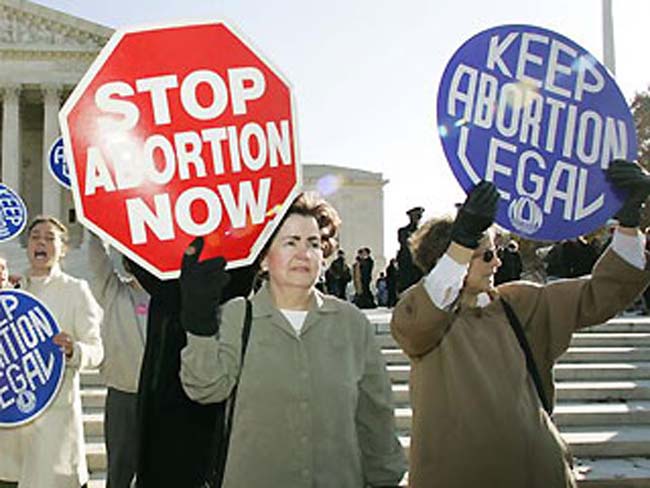I witnessed an odd spectacle last December. Lugging my laundry through the Bryan Complex basement, I noticed a flier with a picture of an infant, sitting peacefully, finger in mouth, wearing a Santa hat. It read: “1.21 million babies will not be celebrating Christmas this year.” Then I saw an index card thumb-tacked beside it: “1.21 million mothers had a choice, and it sure as hell wasn’t easy.” I didn’t know what to make of it, so I kept going. Passing it later that night, I saw the index card was gone and the flier was covered with fighting words. I sighed. I’ve always tried to avoid abortion politics. It strips people on both sides of their rationality and engenders nothing but pettiness and anger. And that’s sad, because at the heart of both sides is a fundamental respect for the value of human life. It would be nice if we could direct that respect and empathy toward those who disagree with us.
The first step is recognizing each other’s legitimacy. Pro-life and pro-choice views are irreconcilable by nature, but you can at least take the time to understand that others are well intentioned, even as you believe differently. Recently, I asked a good friend I knew to be passionately pro-life why she felt that way. She said it stemmed from her Catholic faith and that no one has the right to take another person’s life. There was no hint of malice, no hearkening back to an era when women lacked basic control of their lives. There was only compassion for the unborn. I’m deeply pro-choice, but I sometimes need to be reminded why those opposed to abortion have fought so hard since Roe v. Wade: to protect vulnerable life.
If you truly believed that from the moment an egg is fertilized, it should be treated with the same care and dignity afforded the already born, your reaction to abortion would reasonably be one of horror. You would see it as an ugly, barbaric act. That 55 million abortions have been performed would be a cause for great mourning. You would believe, regardless of the circumstances, that society should have no part in this atrocity. I would advise even the most fervent supporters of abortion rights to consider the implications of abortion. Barring miscarriage, abortion prevents the existence of human beings. What if you had been aborted?
However abhorrent abortion may seem to pro-life advocates, they need to understand the equally compassionate motives driving their pro-choice counterparts. I support a woman’s right to terminate her pregnancy because, in my extremely limited capacity, I’m aware of the weight and responsibility and psychological and emotional toll of carrying a pregnancy to full term, giving birth, and then living with the consequences. I’m aware of the imperfections of birth control and the potential mismatch between a woman’s sexual viability and her ability to handle pregnancy. I’m aware of the what-ifs: pregnancy resulting from rape, teen pregnancy, pregnancies that endanger the mother, fetuses with genetic diseases so crippling they would make what short life the child would live agonizing. Abortion is a terrible thing, but I believe it needs to exist as a choice, if only to prevent greater suffering.
There can be common ground between these deeply entrenched foes. It is small but powerful. It comes from listening, from seeing the humanity behind the picket sign. When thousands marched for life in Washington, D.C. last month, they didn’t do it because they hated women; they did it because they wanted to save children. Wendy Davis didn’t filibuster the Texas state senate because she wanted to murder babies; having been a teen mother herself, she likely knew that the steep cost of childbirth would be too much for some women to bear. People feel strongly about abortion because they believe life has value. That should be enough.


I do understand your point – the way I see it, I’m truly pro-life, so I’m proudly pro-choice. Most SCPL don’t understand my point at all.